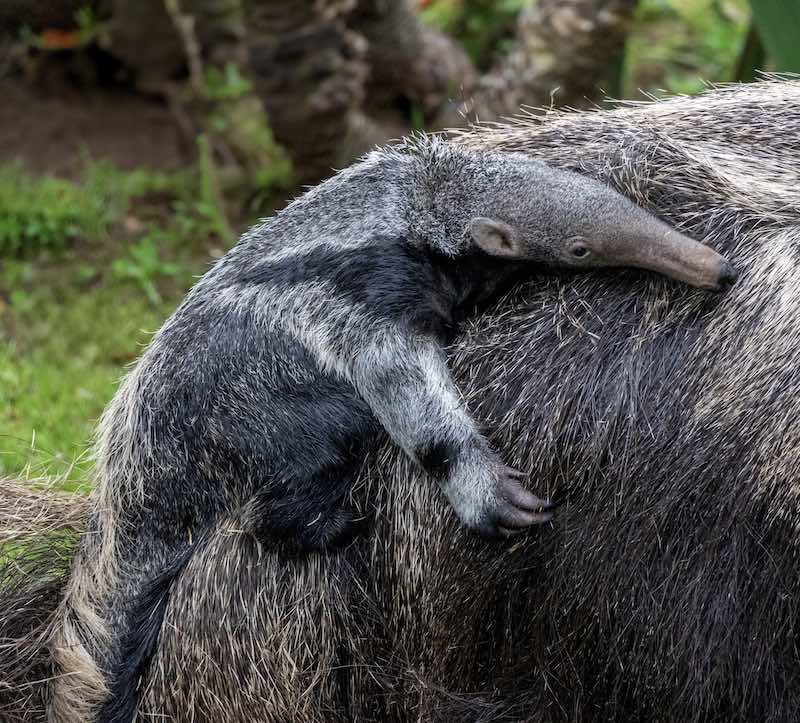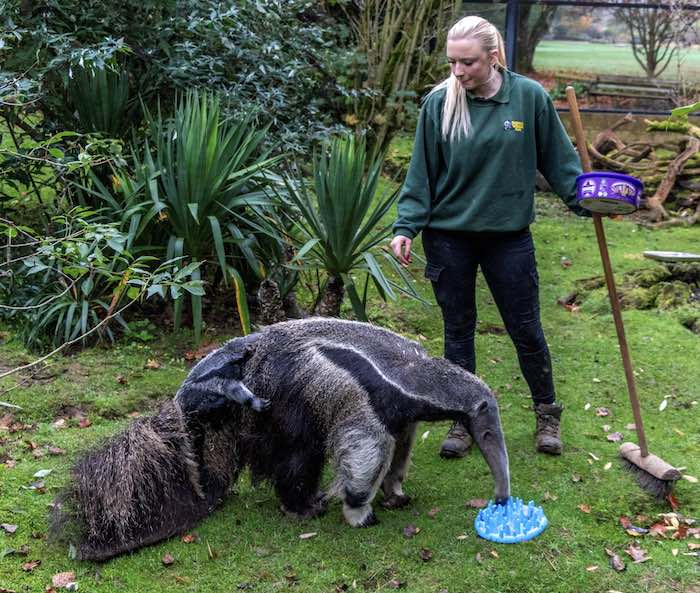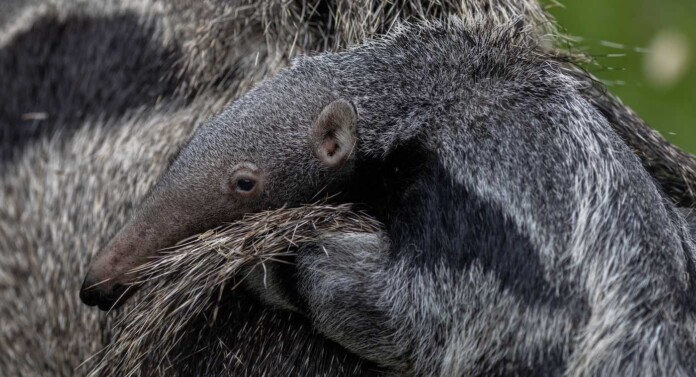Adorable new photos capture a rare giant anteater pup named Antony hitching a ride on his mother’s back, just days after his birth at the Cotswold Wildlife Park in West Oxfordshire, England. Born to a breeding pair that has been at the park since 2010, Antony is their third successful offspring. His arrival came as a delightful surprise to caretakers just before World Anteater Day, celebrated on November 19.
The park is one of only two facilities in the UK to have successfully bred giant anteaters in the past year. Senior mammal keeper Jenni Maxwell discovered the newborn pup during her morning rounds.

“Zeta, his mother, proudly lifted her tail to reveal the pup early Sunday morning,” Maxwell shared. “She’s an excellent mother—patient and attentive—allowing Antony to climb onto her back before venturing out of her bed.”
Antony stands out with a bright white stripe along his back and tail, an unusual feature for an anteater pup. This stripe aligns with his mother’s markings, providing essential camouflage during his early months when he will ride on her back.

After a gestation period of approximately 190 days (27 weeks), giant anteaters give birth to a single pup, which immediately climbs onto its mother’s back. Weighing just 2.9 pounds (1.3 kg) at birth, pups are born fully furred with adult-like markings for camouflage. They remain on their mother’s back for six to nine months, nursing for two to six months before becoming fully independent by about two years of age—or sooner if the mother becomes pregnant again.
Listed as “Vulnerable” on the IUCN Red List, giant anteaters are among the most endangered mammals in Central America. Their wild population, estimated at around 5,000 individuals, faces threats from habitat destruction, road accidents, hunting, and wildfires.
Efforts by zoos like Cotswold Wildlife Park play a vital role in conserving the species, boosting their numbers, and raising awareness about their plight.
